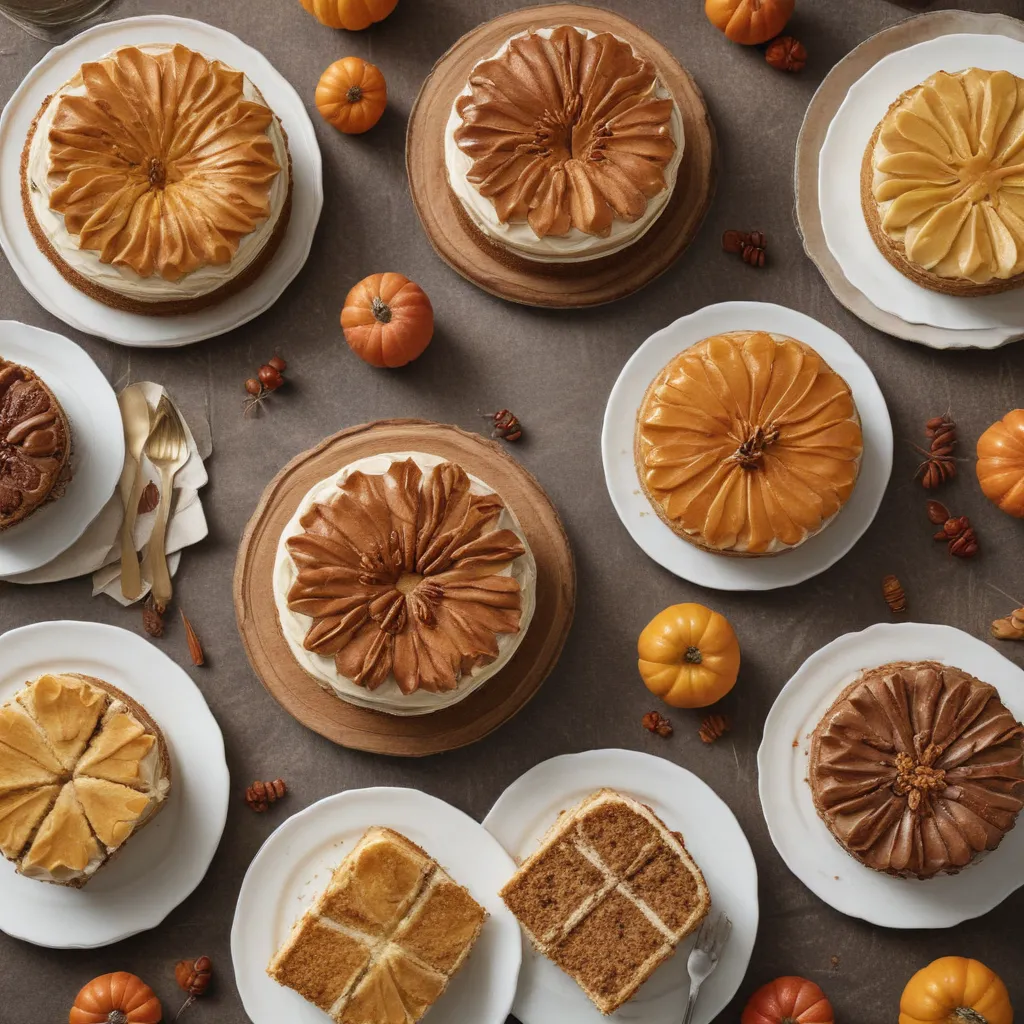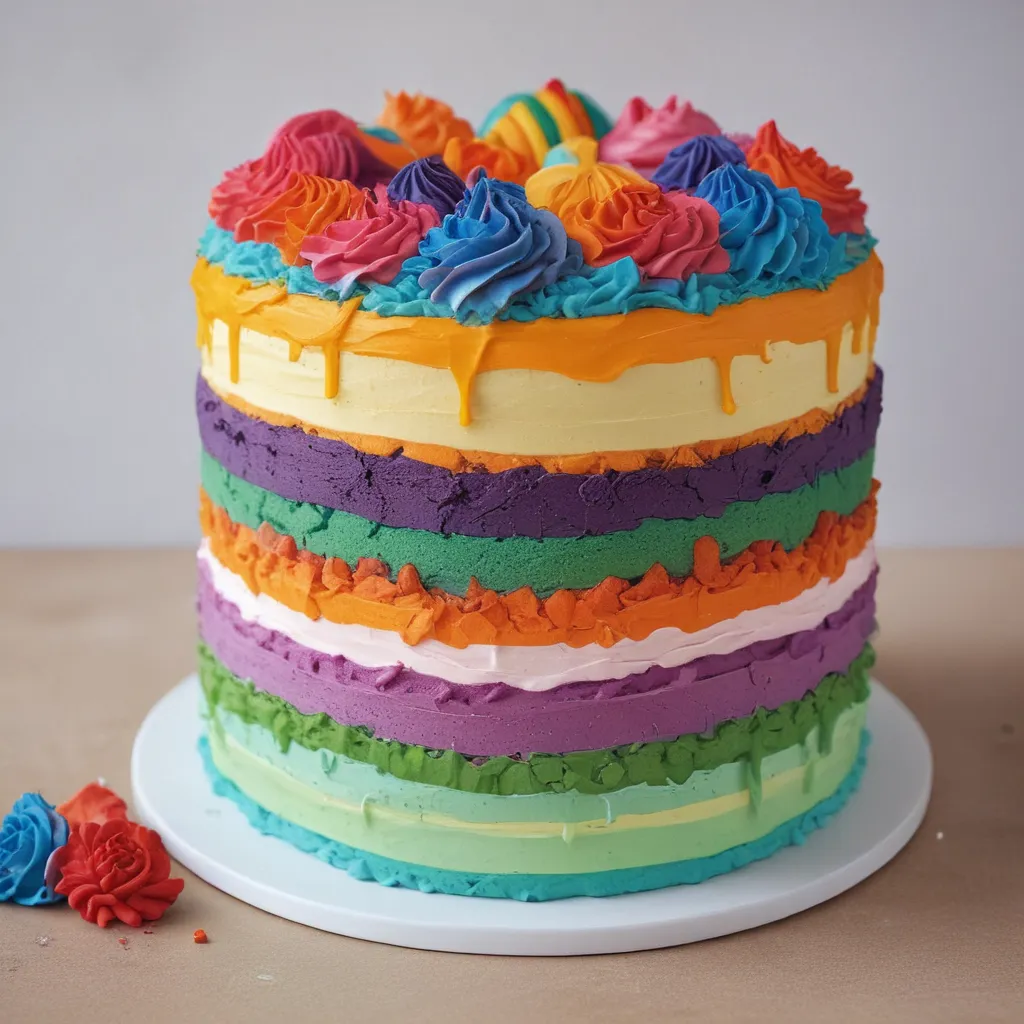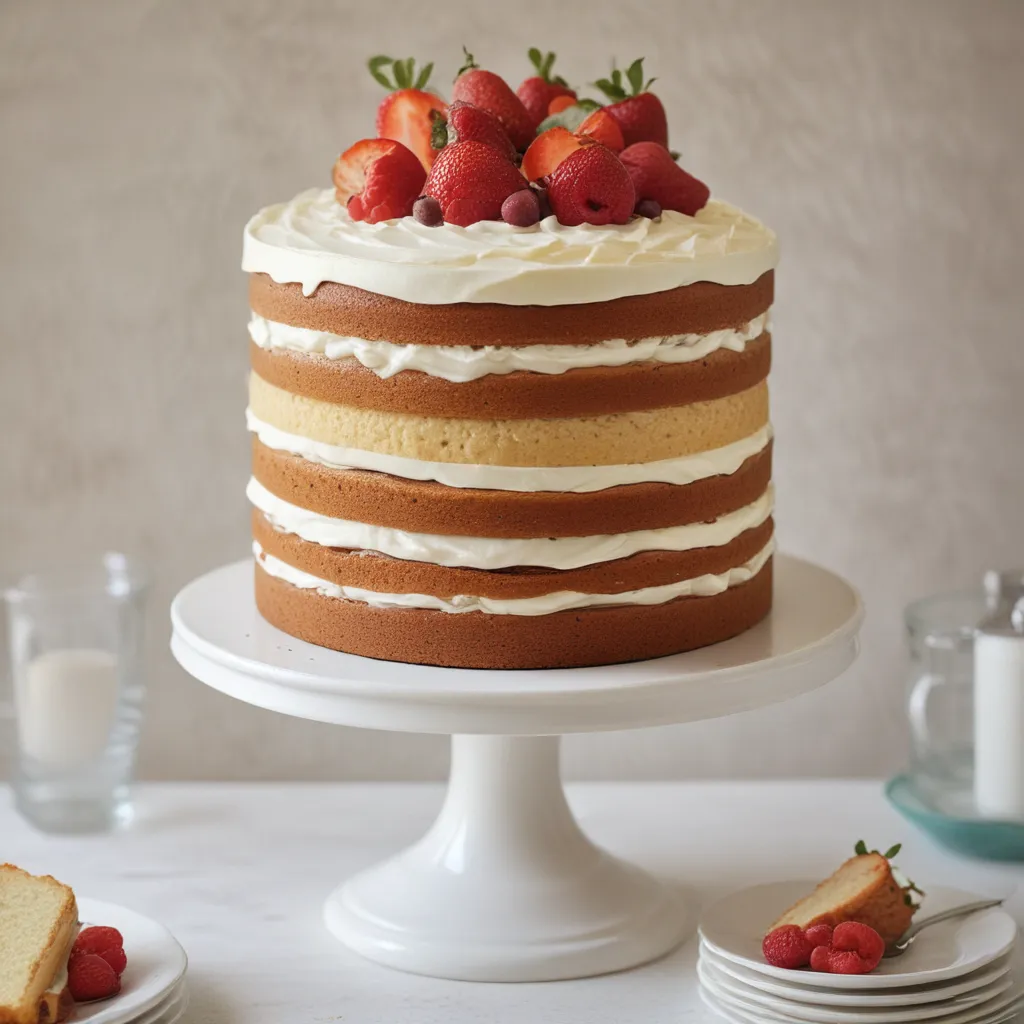The Origins of Cake: From Ancient Civilizations to Modern Delights
Ah, cake – the delectable treat that has captured the hearts and taste buds of people worldwide for centuries. But have you ever wondered about the fascinating history and evolution of this beloved culinary creation? Join me on a delectable journey as we explore the rich tapestry of cake traditions from ancient civilizations to the modern-day masterpieces that grace our tables.
Let’s start at the very beginning, shall we? The origins of cake can be traced back to the ancient Egyptians, who were known to bake simple breads and sweetened honey cakes for religious ceremonies and special occasions. These early cake-like creations were often dense, flat, and more akin to what we’d consider a modern-day pastry or biscuit. But, my friends, the story only gets more intriguing from there.
As the centuries passed, cake-making techniques and recipes evolved, taking on new and exciting forms. The ancient Greeks, for instance, developed intricate layered cakes adorned with seasonal fruits and nuts, while the Romans introduced the concept of frosting by using cheese and honey to coat their cakes. Imagine the delight of those ancient revelers as they sank their teeth into those sweet, creamy treats!
The Rise of Opulent Cake Traditions
But it wasn’t until the Middle Ages that cake-making truly began to flourish and take on a more recognizable form. During this time, the wealthy and noble classes started to showcase their power and status through the ostentatious display of elaborate, multi-tiered cakes. These towering confections were not only a feast for the eyes but also a testament to the skill and ingenuity of the bakers who crafted them.
One particularly fascinating example of this opulent cake tradition can be found in the history of the wedding cake. In medieval Europe, the wedding cake was often a symbol of fertility and prosperity, with each tier representing a different stage of the couple’s journey. The cutting and sharing of the cake was an important ritual, and the more tiers the cake had, the more prosperous the couple was believed to be.
As the Renaissance period dawned, cake-making continued to evolve, with the introduction of new ingredients and baking techniques. The French, in particular, became renowned for their exquisite pastries and cakes, which often featured delicate almond-based sponges, rich chocolate ganaches, and intricate decorations.
The Democratization of Cake
But the true democratization of cake began in the 19th century, as industrialization and technological advancements made it possible to mass-produce and distribute these delectable treats to the masses. No longer were cakes the exclusive domain of the elite; now, people from all walks of life could indulge in the joy of a perfectly moist, flavorful cake.
One such innovation that revolutionized the cake industry was the introduction of the cake mix. In the 1930s, companies like Duncan Hines and Betty Crocker began offering pre-measured, easy-to-prepare cake mixes, making it possible for home bakers to create professional-quality cakes with minimal effort. This, in turn, sparked a surge of creativity and experimentation, as people began to personalize and customize their cakes to suit their unique tastes and preferences.
Today, the world of cake-making is more diverse and vibrant than ever before. From the classic, time-honored recipes to the cutting-edge, innovative creations, cakes have become a true canvas for artistic expression. And the best part? You don’t have to be a trained pastry chef to create something truly spectacular. All it takes is a little creativity, a dash of passion, and a whole lot of deliciousness.
Celebrating Cake Traditions Around the World
But the story of cake doesn’t end there, my friends. Around the world, different cultures have their own unique cake traditions that reflect their history, customs, and culinary heritage. Let’s take a closer look at some of the fascinating cake traditions from across the globe.
In Mexico, for example, the beloved Day of the Dead celebration is marked by the creation of elaborate, colorful “pan de muerto” (bread of the dead) cakes, adorned with bone-shaped decorations and topped with a sprinkling of sugar. These symbolic treats are meant to honor the memory of loved ones who have passed on, and the process of baking and sharing them is an integral part of the festivities.
Meanwhile, in Japan, the art of cake-making has evolved into a true culinary masterpiece. From the delicate, spongy castella cakes to the intricately decorated wagashi sweets, Japanese bakers have elevated cake-making to an almost meditative level of precision and beauty. And let’s not forget the iconic Japanese strawberry shortcake, which has become a beloved tradition, especially during the cherry blossom season.
And of course, no discussion of cake traditions would be complete without mentioning the iconic American birthday cake. Whether it’s a towering, multi-layered confection or a simple sheet cake adorned with sprinkles and candles, the birthday cake has become a beloved symbol of celebration and joy, transcending cultural boundaries and bringing people together through the universal language of sugar and spice.
The Future of Cake: Trends and Innovation
As we’ve seen, the story of cake is one that is constantly evolving, with new techniques, flavors, and artistic expressions emerging all the time. And as we look to the future, it’s exciting to imagine the ways in which cake-making will continue to transform and surprise us.
One trend that has been gaining momentum in recent years is the rise of the “naked” cake. These minimalist, unfrosted cakes showcase the natural beauty of the cake itself, often with layers of moist sponge and fresh fruit or buttercream peeking through. It’s a refreshing departure from the heavily decorated cakes of the past, and a testament to the idea that sometimes, less really is more.
Another fascinating development in the world of cake is the growing popularity of alternative dietary options, such as vegan, gluten-free, and keto-friendly cakes. As people become more conscious of their health and dietary needs, bakers are rising to the challenge, creating delectable treats that cater to a wide range of preferences and restrictions.
But perhaps the most exciting frontier in cake-making is the realm of technology and innovation. With the advent of 3D printing and other cutting-edge tools, bakers are now able to create truly mind-bending, sculptural cakes that push the boundaries of what’s possible. Imagine a cake that looks like a towering work of art, or a dessert that changes colors or even emits aromas as you take a bite. The future of cake is, quite literally, limitless.
Conclusion: Embracing the Joy of Cake
As I reflect on the rich and diverse history of cake, I can’t help but be in awe of the ways in which this humble, yet beloved treat has captured the imaginations of people around the world. From the ancient Egyptians to the modern-day cake artists, the story of cake is one of creativity, innovation, and a deep-seated love for the sweet, indulgent pleasures of life.
And you know what? I think that’s something we could all use a little more of in our lives. In a world that can sometimes feel overwhelming and stressful, the joy of a perfectly baked, beautifully decorated cake can be a powerful antidote. It’s a moment of pure, unadulterated delight – a chance to slow down, savor the moment, and connect with the people we love.
So, the next time you find yourself craving a slice of cake, I encourage you to embrace it whole-heartedly. Indulge in the flavors, admire the artistry, and let the experience transport you to a world of sweetness and wonder. After all, cake is more than just a dessert – it’s a testament to the enduring power of human creativity, the comfort of tradition, and the sheer joy of indulgence.
And if you’re ever in the San Jose area, be sure to stop by Jax Cake Shop – our talented team of cake artists would be honored to help you create a custom cake that celebrates your unique story and leaves a lasting impression on your taste buds. Here’s to the endless delights of cake, my friends. Bon appétit!





